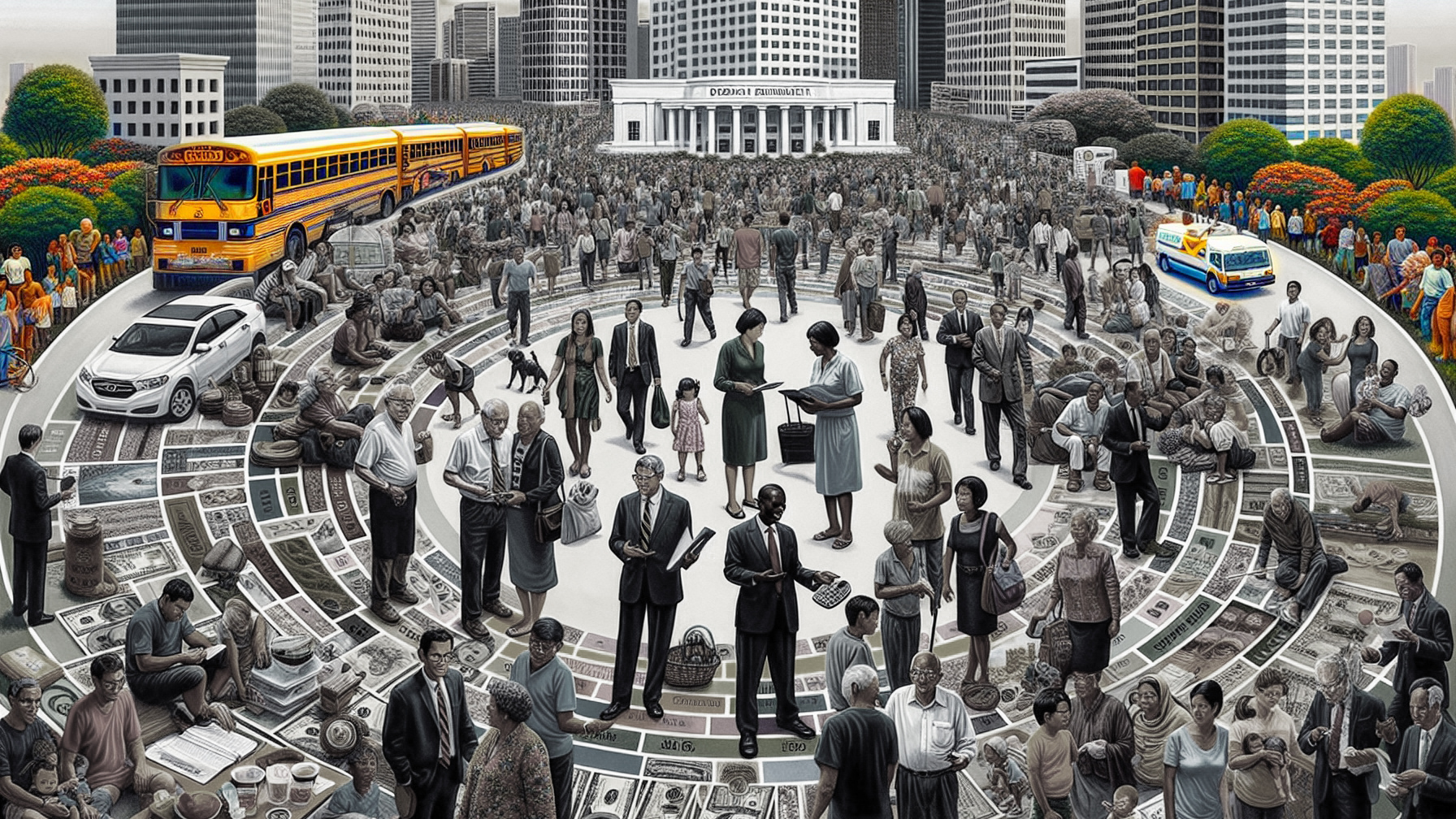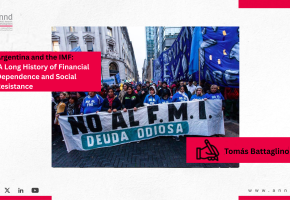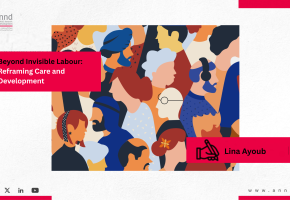
Debt Repayment and Social Justice: A Balancing Act - Gracia Ndanatsei Mashingaidze
Gracia Ndanatsei Mashingaidze

Debt Repayment and Social Justice: A Balancing Act - Gracia Ndanatsei Mashingaidze
Introduction
In the intricate dance of economic policy, debt repayment, and social justice often find themselves in a delicate balance. On one side, the obligation to honor debts ensures the stability of financial systems and the trust of international investors. On the other, the pursuit of social justice demands that we address the inequalities exacerbated by debt burdens, particularly in marginalized communities. This article delves into the complexities of reconciling these two imperatives, exploring how nations, especially those in the developing world, can navigate the tightrope of fiscal responsibility while championing the cause of social equity.
Debt repayment refers to a country's obligation to service its debt through interest payments or principal redemption. Governments walk a financial tightrope, balancing economic growth and fiscal discipline. Social justice is fundamentally concerned with ensuring fairness, equity, and equal chances for all. It includes access to education, healthcare, shelter, and other basic necessities. Social justice requires debt management mechanisms that do not undermine these fundamental rights.
The Weight of Debt
For many countries, debt is a double-edged sword. It provides necessary capital for development but can also become an albatross around the neck of national economies. The impact of debt repayment on social justice is profound. Resources that could be allocated to social programs, education, and healthcare are often diverted to service debts, leaving the most vulnerable populations in a perpetual state of disadvantage. Total foreign debt as a percentage of Africa's export profits rose from 74.5% in 2010 to 140% by 2022. In 2022, African governments needed to devote approximately 12% of their revenue to debt payments. Between 2019 and 2022, 25 African states dedicated more money to debt payments than residents' health. In late 2023, the International Monetary Fund (IMF) reported that more than half of low-income African countries had difficulty servicing their loans.
The Quest for Equity
Social justice seeks to level the playing field, ensuring that all individuals have equal access to opportunities and resources. However, the burden of debt can stifle this pursuit. When a significant portion of a nation's budget is tied to debt servicing, it limits the government's ability to invest in programs that could uplift the disenfranchised and promote economic mobility. Women and young people are disproportionately affected by these debt difficulties. Women suffer the consequences of gender roles and social standards that perpetuate patriarchy, such as having to stand in huge lines for hours to collect water. The crisis also raises the burden of unpaid care work, exposes women to new risks, and inevitably violates their rights to dignity and a life free of abuse. OSISA (2019) correctly states that "women often bear the brunt of reduced economic opportunities as well as inadequate education and healthcare provision that results from the indebtedness." According to an article by ZIMCODD (2020), The reduction of social investments by states in Southern Africa in favor of servicing debt has seen an increase in unpaid labor that is overwhelmingly shouldered by women and girls. On the other hand, youth have endured the consequences of the debt crises, such as unemployment, which results from an underperforming economy.
Nexus Between Debt and Social Justice in Zimbabwe
Debt and justice are inextricably linked in Zimbabwe. ZIMCODD (2020a) contends that public debt is a source of injustice, and Kaya (2005) found that Africans spend four times more on debt repayment than on healthcare. As a result, debt servicing takes precedence, and regular people suffer from poor healthcare delivery, limited access to education, unemployment, and a limited ability to trade and produce for themselves. Rising public debt burdens public resources, reducing the government's ability to meet its human rights commitments, such as the right to education, basic health care, and water and sanitation, among other social and economic rights.
Striking a Balance
Balancing debt management and social justice presents complex issues for developing countries. High debt levels can drain resources from vital social initiatives, compromising education, healthcare, and poverty alleviation. Interest payments on debt occupy a sizable amount of national budgets, reducing funds available for social welfare programs. Policymakers must choose between debt repayment and social infrastructure improvements, and international creditors can exert influence on policy decisions. These difficulties necessitate creative approaches that promote both sustainable debt management and equitable social well-being. The challenge lies in finding a sustainable path forward. Debt restructuring, fair trade agreements, and transparent public finance management are potential avenues through which countries can alleviate the pressure of debt repayments while still honoring their commitments. Moreover, international cooperation and understanding are crucial in crafting debt solutions that do not compromise the welfare of a nation's citizens.
Conclusion
Debt repayment and social justice do not have to be mutually exclusive. It is feasible to meet financial responsibilities while still building a more equal society through intelligent policies and a dedication to human dignity. As we continue to battle these difficulties, let us remember that at the center of economics are people's lives and well-being, which must not be dominated by the ledger.
Gracia Ndanatsei Mashingaidze
This article is part of a series written by participants of Global South Study Week 2024 and does not necessarily reflect the views of ANND.
BIBLIOGRAPHY
Africa's debt crisis needs a bold new approach. Here's what countries can do | World Economic Forum (weforum.org)
Bhatasara S& Chiweshe M,K Rethinking Debt Justice and Gender Justice in Zimbabwe: Equity in Shouldering the Debt Burden, https://zimcodd.org/
Breaking the Cycle of Debt and Poverty: A Call for Care-Centered . https://www.escr-net.org/news/2023/breaking-cycle-debt-and-poverty-call-care-centered-approach-advance-debt-justice.
Decoding Debt Injustice: shed new light on how the global debt crisis .... https://cesr.org/decoding-debt-injustice/.
Mensa J A and Muazu I (2024), The impact of public debt on income inequality in Africa The impact of public debt on income inequality in Africa | Brookings
Njuguna Ndung’u, Abebe Shimeles, Damiano K Manda Growing with Debt in African Economies: Options, Challenges and Pitfalls Journal of African Economies, Volume 30, Issue Supplement_1, November 2021
OSISA. 2019. Debt, Gender and Power. http://osisa.org/debt-gender-and -power/.
Student Debt is a Racial Justice Issue. Here’s What President Biden Can .https://www.aclu.org/news/racial-justice/student-debt-is-a-racial-justice-issue-heres-what-president-biden-can-do-to-help
The student debt burden and its impact on racial justice, borrowers .https://www.brookings.edu/articles/the-student-debt-burden-and-its-impact-on-racial-justice-borrowers-and-the-economy/.
Towards Debt and Climate Justice: A Human Rights and Transitional .... https://www.escr-net.org/news/2023/towards-debt-and-climate-justice-human-rights-and-transitional-justice-approach.
ZIMCODD 2019b. https://zimmorningpost.com/national-debt-negatively-impacting-on-women zimcodd/
Recent publications

